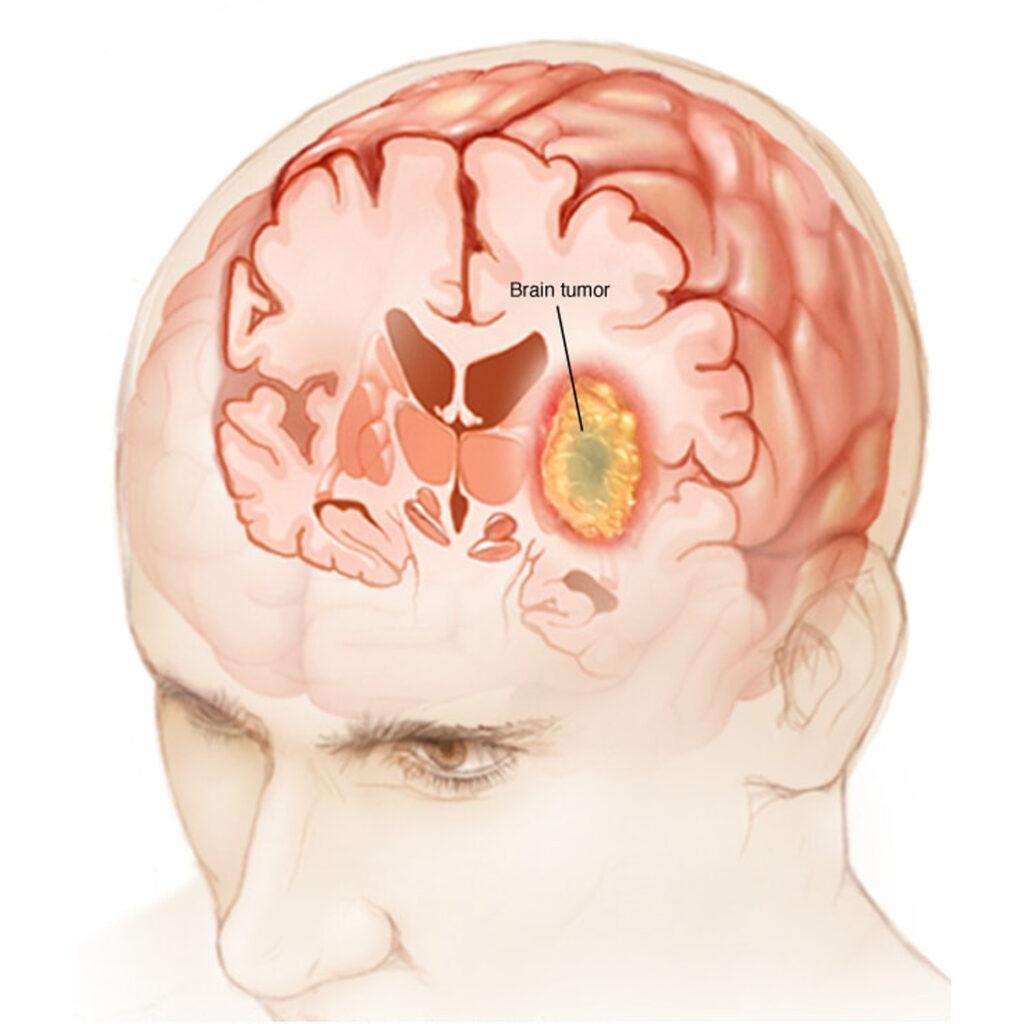BRAIN TUMOR
What is Brain Tumor?
Brain tumor, also known as “intracranial tumor”, is the abnormal and uncontrollable growth of mass tissue. Brain tumors can be malignant or benign. The main difference between brain cancer and brain tumors is that all brain cancers are tumors. There are numerous types of brain tumors, they are all categorized into two titles primary and metastatic. The category and type of the tumor (whether it is malignant or benign) determines the treatment.
Primary brain tumors are the type of tumor group that occurs directly in or around the brain. Primary brain tumors that develop in the cells are named glial which means the tumor is composed of glial cells. Primary brain tumors that develop in the structures such as nerves, blood vessels, and glands of the brain are called non-glial. Both glial and non-glial brain tumors may be benign or malignant.
Metastatic brain tumors are the ones that occur in a different part of the body and through the bloodstream affect the brain. Metastatic brain tumors are called metastatic brain cancer and they are generally malignant.
Whether it is benign or malignant, as the tumor grows larger it presses the nerves, blood vessels, and tissue. Once the tumor is diagnosed it has to be treated as soon as possible otherwise it may harm brain functions.
What are the Symptoms of Brain Tumors?
Brain tumors can be found at any age. Among children and adolescents, brain tumors are very common. The very first sign of brain tumors is a headache. The symptoms of brain tumors are various and change due to the placement of the tumor.
Meningiomas, pituitary gland, medulloblastoma, and skull bases are the most common regions of brain tumors. When a brain tumor occurs in medulloblastoma it may cause trouble with movement, walking, balance, and coordination.
Common signs and symptoms of brain tumors include;
- Headache (which gets worse day by day)
- Numbness
- Unexplained nausea or vomiting
- Seizures
- Vision problems, such as blurred vision, double vision, etc…
- Difficulty in thinking, speaking, or finding the right words
- Difficulty with balance,
- Unexplained tiredness,
- Muscle weakness,
- Difficulty in making decisions, n
- Loss of sensation or movement in an arm or a leg that occurs gradually,
- Memory loss
Brain tumors may also be asymptomatic. In some cases, especially brain tumors in adults, some types of brain tumors grow very slowly that it is hard to notice.
Treatments for Brain Tumors in Turkey (Türkiye)
Non-cancerous brain tumor treatments in Turkey include monitoring medicine that helps to treat some of the symptoms before or after surgery, surgery, and stereotactic radiosurgery.
Surgery if possible is the most effective way to treat benign brain tumors. The goal of the surgery is to remove all the tumors without giving any harm to the surrounding tissue. The non-cancerous brain tumor surgery in Turkey is performed under general anesthesia or local anesthesia (if the individual has to stay awake during the procedure).
Stereotactic radiosurgery is another surgical option when the tumor is hard to remove without damaging surrounding tissue. Stereotactic radiosurgery in Turkey is performed successfully. With the help of tiny beams of high-energy radiation, the tumor can be treated in only one session.
In cases where the entire tumor can’t be removed, chemotherapy and/or radiotherapy may be used to shrink and destroy the remaining non-cancerous tumor.
During the process, the physician might advise some medicines to prevent the negative effects of the symptoms. The medicines can help to reduce swelling around the tumor. Painkillers, antiemetics, and anticonvulsants are medicines that will give deep relief to the individual.
For further information and treatment please contact…

